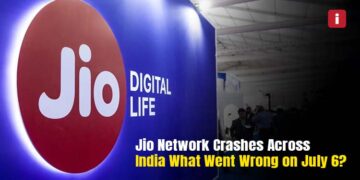RCB’s Historic Win and the Digital Aftershock
June 3, 2025, will forever be etched in cricket history. After 18 long years, Royal Challengers Bengaluru (RCB) finally lifted the Indian Premier League (IPL) trophy. The emotional crescendo reached a fever pitch as Virat Kohli, alongside teammates and legends like AB de Villiers and Chris Gayle, celebrated a long-awaited victory. But while the cricketing world rejoiced, a surprising side-effect rippled through the tech world: Instagram couldn’t handle the celebration.
RCB’s official Instagram account, with over 20 million followers, temporarily crashed under the weight of fan euphoria. Users experienced lags, failed comment loads, and in some cases, a total page crash. Social media, it seems, was bowled over by joy.
The Instagram Glitch | What Actually Happened?
Shortly after RCB’s win, Instagram’s platform saw an extraordinary surge in traffic. Comments flooded in by the second, reels of the winning moment went viral, and hashtags like #EeSalaCupNamdu and #RCBChampions2025 trends globally. The platform’s infrastructure faced a sudden, localized spike in activity, particularly on the RCB handle, which reportedly received millions of likes and views in a matter of minutes.
Although Meta (Instagram’s parent company) hasn’t released an official statement, tech experts speculate a temporary overload of the account’s content delivery endpoints, possibly due to insufficient caching or rate limit breaches in the backend API. This resulted in failed page loads and comment glitches for thousands of fans.
How Social Platforms Handle Virality
Instagram, like many large-scale social media platforms, uses a combination of Content Delivery Networks (CDNs), distributed databases, and auto-scaling cloud infrastructure to handle large traffic volumes. But when an event like this occurs—where one account experiences concentrated, near-instantaneous global engagement it can expose cracks in even the most robust systems.
Virality isn’t just about trending topics. It’s a stress test for platform resiliency. From API throttling to content caching and dynamic scaling, each layer must respond rapidly. In the case of RCB’s win, the sheer speed of engagement likely exceeded safe operational thresholds.
Virat Kohli, the Internet Magnet
Part of the traffic frenzy can be credited to RCB’s emotional appeal and one man in particular Virat Kohli. With over 280 million followers across social media, Kohli is one of the most followed cricketers globally. His celebratory posts alone can generate millions of interactions within minutes.
This digital magnetism, when combined with India’s cricket fanbase and the IPL’s global reach, created a perfect storm. Former players like AB de Villiers and Chris Gayle joined the online celebrations, further accelerating the digital momentum.
Fan Culture as a Tech Force
The slogan “Ee Sala Cup Namdu” (This year, the cup is ours) wasn’t just a chant, it became a digital movement. Memes, reels, tribute videos, and live streams surged across platforms, overwhelming not just Instagram but also Twitter, Reddit, and YouTube. This is fan culture in 2025: global, real-time, and tech-heavy.
We’ve seen similar digital spikes during events like Lionel Messi’s World Cup win and India’s Chandrayaan-3 landing. But RCB’s win proved that even regional sports victories can generate global-level tech load.
Can Social Media Keep Up With Fandom?
This incident raises an important question: Are social platforms prepared for the future of real-time fan overloads?
As AI-driven content recommendation engines push viral content further and faster, platforms need to re-evaluate their backend resilience. Edge computing, smarter load balancing, and better localized caching could be crucial. Meta, for instance, may need to consider infrastructure zoning for high-risk moments in global regions.
Conclusion: A Trophy for RCB, a Test for Tech
RCB’s triumph in IPL 2025 wasn’t just a cricketing milestone; it was a milestone in digital fandom. When emotions ran high, the internet stumbled. This incident is a wake-up call for platforms to prepare for the digital future of sports, where millions celebrate online, in sync, and at speed.
In the end, RCB lifted the cup but also lifted the lid on a new frontier of tech readiness.













































